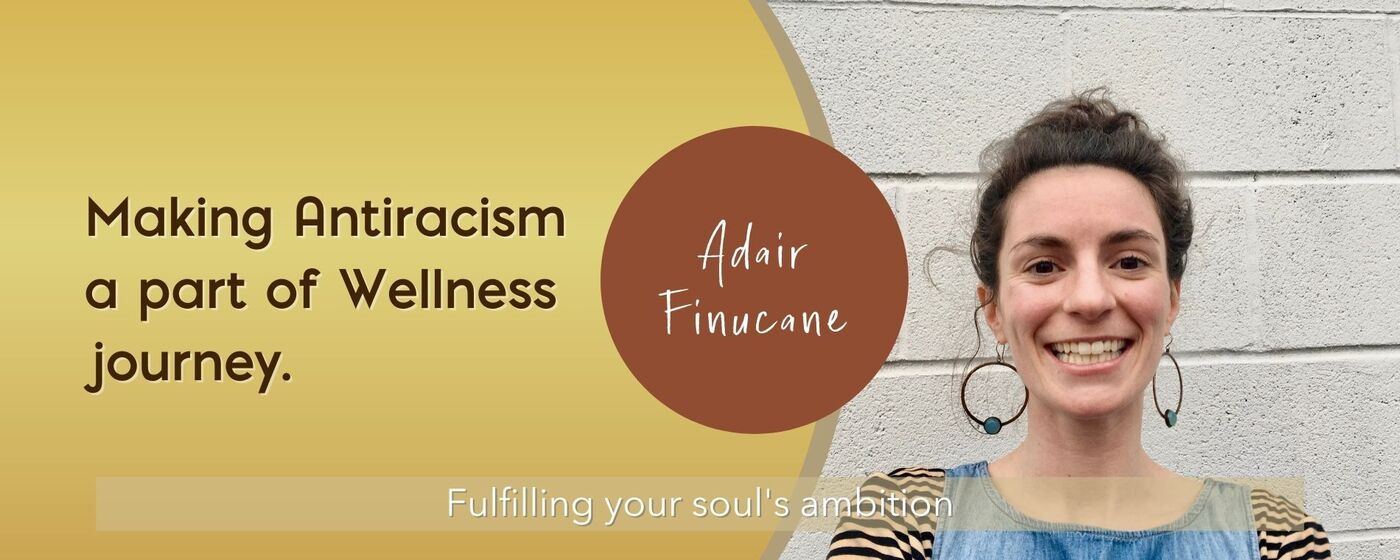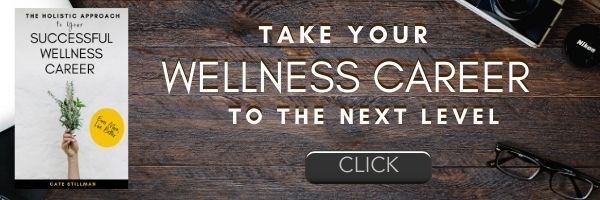
Making antiracism a part of the wellness journey
I currently serve a group of white women in my year-long program, Being Extraordinary. We’re an incredibly high-vibe group and we all care about what’s going on in the world. Nevertheless, we’re all at different points in our antiracism journey.
I recently got to participate in a call-to-action training around anti-Blackness and racism. It was a 20-hour training run by a local Black-owned yoga studio and Yoga 4 a Good Hood, an organization that focuses on creating yoga spaces that celebrate Black wellness, and training Black yoga teachers and yoga teachers of color. After the training, we were asked to create action items around making the local yoga scene more accessible and open to Black people and people of color. We need to put these plans into place within 3 months in order to get Yoga Alliance credit.
One of my actions is having regular antiracism training as a mandatory practice in my group (at least for all white members – I’m seeking consulting on how to implement this). This is essentially to make the space safer – to ensure a baseline of self-awareness and racism awareness in myself and my members, so that I can feel confident in inviting BIPOC guest teachers and members into my group.
The massive intergenerational impact of racism on BIPOC is something I cannot and will not ever be able to understand, though I think it’s critical to make that effort. Rachel Cargle and Thea Monyee are two of the many incredible Black women who provide education around this topic. Antiracism Daily is an impressive, highly educational newsletter with action points around many topics.
I am not making a value comparison on how racism impacts BIPOC vs. white people. Take a look at not only U.S. history but colonial history throughout the world over the last ~400 years, and it’s clear: there’s no comparison here. But just as men suffer from living in a system of toxic masculinity, living in a white supremacist culture harms white people. This stuff is not good for anyone, and the more we ignore how racism harms us as white people, the more we perpetuate the values of a white supremacist society. Change comes from within.
Consciously or not, white people as a collective are carrying around feelings of guilt, rage, denial, shame, fear, frustration, powerlessness (you name it) with regards to racism. There is SO much ama – undigested emotion – around racism. Just like all the other ‘stuff’ we carry around, it needs processing. This is old. It’s intergenerational. It’s sticky and processing it can feel really uncomfortable. But so can a trigger point held by a talented massage therapist. There’s a purpose to the intensity – it helps us to release what was holding us back.
Lack of self-awareness around whiteness, racism, and white supremacy can cause serious, if often unintentional, harm to BIPOC. There are a lot of reasons why many wellness spaces aren’t more racially and ethnically diverse. Sometimes they are structural and overt, and sometimes they’re subtle and social. If you want a crash course in this, I recommend checking out Decolonizing Yoga & Wellness.
The issues around racism in the U.S. are old and entrenched, and they’re not going to end in a snap. In learning how to address these problems with my group, I’m tapping into divine guidance on a daily basis and rooting myself in joy. I’m having discussions with friends and spiritual advisors. It’s taking time to let that unfold. My basic plan is to lead some of the initial work with my members – to talk about concepts like racism, white supremacy, privilege, etc. and let some of those gnarly emotions come up with me, a white person, holding the space. These topics can bring up a lot of denial, tears, and general upset (I know they have for me). This is especially true if people aren’t accustomed to being in actively antiracist spaces, which I know some of my members aren’t. Once I help them take the edge off, it will be safer for a Black trainer to come in to share wisdom and action points around how we can be better ancestors.
Investing time and money in these actions feels necessary in order to bring Black guest speakers and speakers of color into my group while having a pretty good sense that the space will feel safer for them. The more I listen to BIPOC stories of being in the wellness world, the more I realize that we need to do this. Not to mention, we all benefit from increasing the diversity of those teaching and sharing wisdom. It’s important to normalize learning from BIPOC teachers and wellness professionals in spaces where white teachers are often the norm.
Micro (and macro) aggressions in wellness spaces cause real harm and can keep people who don’t look like me from accessing what they need. Wellness is a human right, and it’s often treated as a luxury item – made available to some and not others. If someone comes to a space to feel well, but they have a bad experience as a result of being seen as ‘other,’ they have to make a choice about whether wellness is worth leaving bruised over. This is a problem that I don’t have to go through personally – I hold a tremendous amount of privilege as a thin, white, conventionally attractive, able-bodied woman with a lot of education and a Christian, middle-class upbringing. Learning about how white supremacy impacts each of us differently has been a profound and necessary journey for me as a healer. I see no end in sight: yoga’s meaning is union. We are all connected. And in the words of Emma Lazarus, “Until we are all free, we are none of us free.”
I want my group to be a place where those who are drawn to my work, regardless of how they look and how the world sees them, can know that antiracism work is being done directly in the group. I can’t undo what’s been done for centuries, but I can make choices about how the space I lead can purposefully create a shift in the narrative.
Here are a few final, important points:
- I don’t know what I’m doing – it’s one foot in front of the other over here.
- I have and will continue to make mistakes in these efforts.
- I cannot ensure that ANY space is truly safe for ANYONE. Nobody can. We are limited to due diligence, in alignment with our higher selves.
What we can do is shine lights into dark and unconscious corners of our hearts and institutions and keep spreading the light, on purpose. For those of us who are white: keep listening to the Black womxn, Native womxn, South and East Asian womxn, Latinx womx, Pacific Islander womxn, Aboriginal womxn, and all women of color who share their wisdom about these topics. And pay them when they help us with this work! Thank you for reading. I love you!


